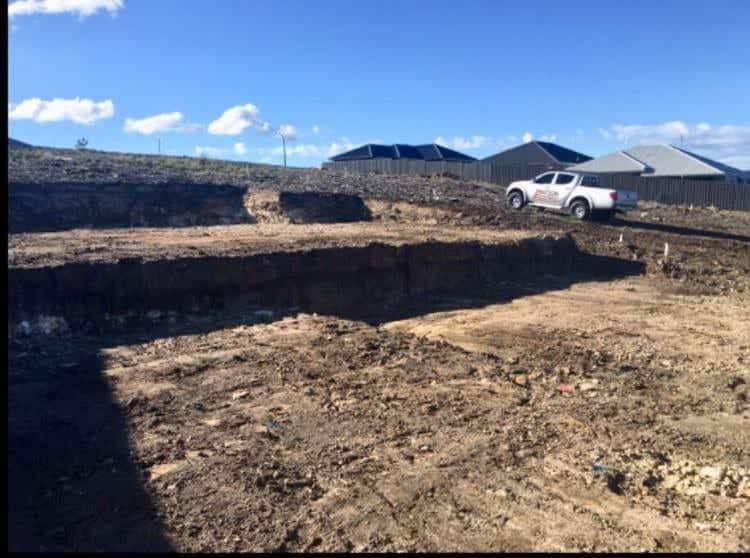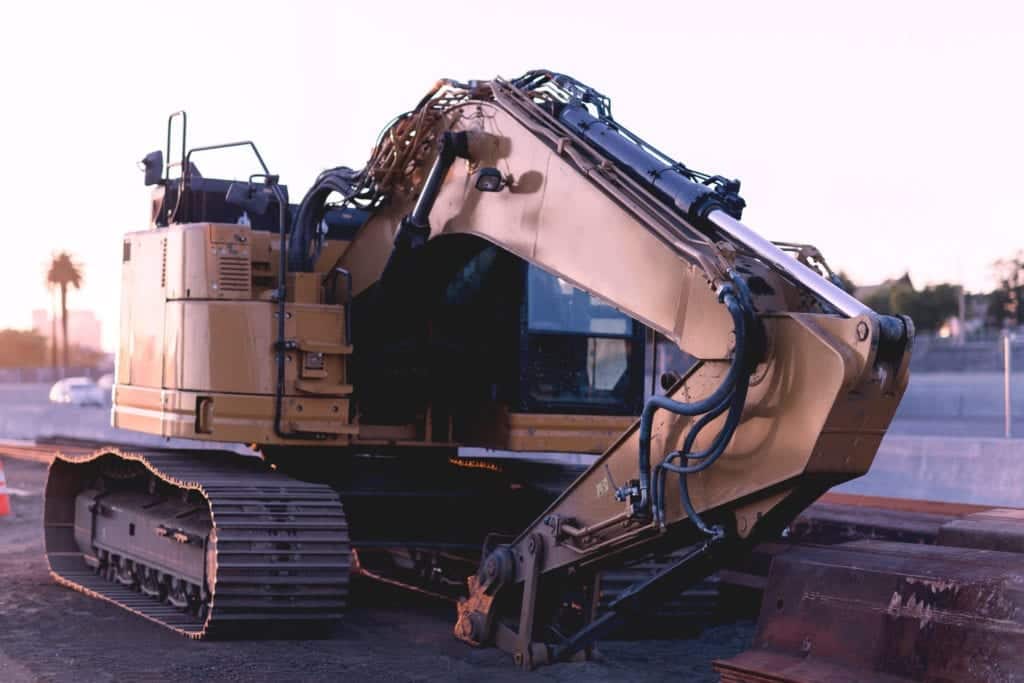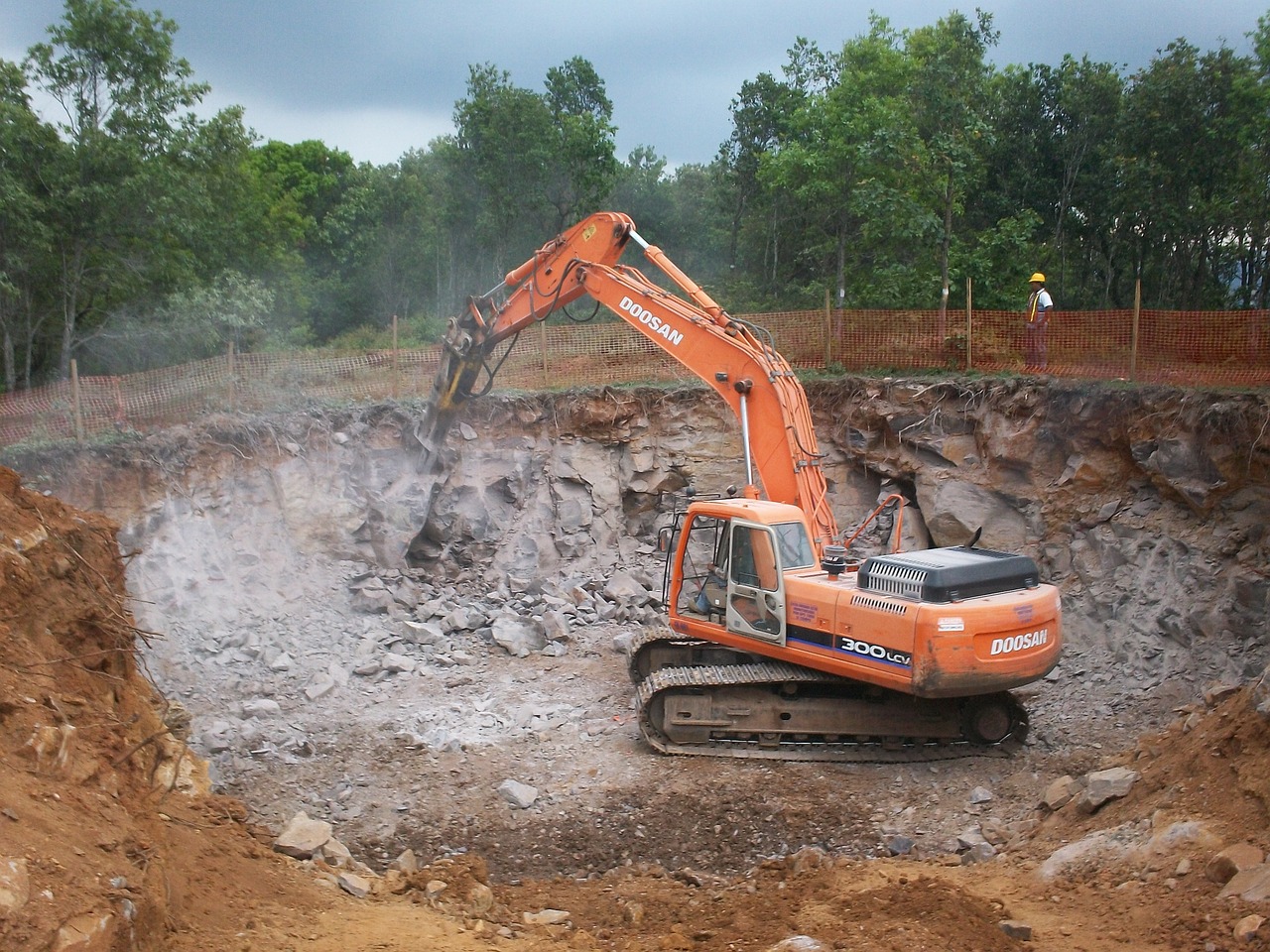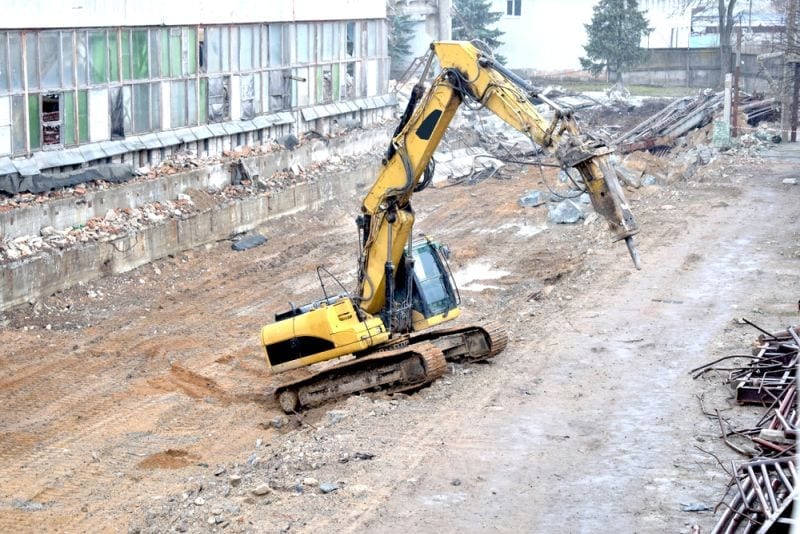
Looking for an Australian Excavation guide?
When it comes to building and construction, having the right foundation is really essential. We might have heard of many problems in buildings and various other projects arising due to foundation issues.
The excavation construction involves making buildings, pool and tunnels, and more. Hence, it is necessary for one to understand excavation processes, licenses, options: in short, every possible information in all the dimensions before you start.
What is Excavation?
The process of moving dirt, rock, or other materials with equipment, tools, or explosives is excavation. Earthwork, trenching, wall shafts, tunneling, and the underground are included. There is a range of significant uses for excavation, including exploration, environmental preservation, mining, and construction. Construction, among these, is one of the most common excavation applications. In construction, excavation is used to establish building foundations, lakes, and roads.

Trenching, digging, dredging and site construction are some of the many methods involved in the excavation. To get the job done right, each of these methods involves special procedures, equipment, and machinery. The techniques used would depend on the context that will emerge from the building process.
Types of Excavation
Home Excavation
Preparing the land for building purposes is the calm before the storm. There involves a lot of excavation involved when building a house. In fact, a proper and strong foundation is not even possible without excavation.
A good excavation is the first phase of a house without foundation problems. Whether it be underground parking or excavating the backyard, home excavation is really popular and can be seen practiced everywhere.
Driveway Excavation
A highly practical and attractive part of the house is the driveways. Matching the vibe of the house and being elegant yet basic is important for it. The different choices for finishing and coloring make colored concrete driveways the perfect alternative.
A colored concrete driveway will improve your driveway’s architectural appearance and give it a sleek appearance. Your driveway should represent the wonderful home transformation, and when building or reconstructing your driveway, you have many choices in today’s modern world.
Driveway excavation involves the use of machinery in the construction of car park slabs and more. The inclination that the engineers want for different purposes (like drainage) can be achieved with the help of driveway excavation.
Swimming Pool Excavation
Splashing waters in the swimming pool is a huge relief in the summertime. In Australia, where temperatures can reach up to a mind-blowing 48 degrees in peak summertime, who wouldn’t like a swimming pool on their premises?

Swimming pool excavation is also one of the most popular excavations done in Australia. It is estimated that nearly 2.7 million Australians live in a house with a swimming pool in Australia, the number is ever-increasing and thanks to the excavation.
Site Excavation
Heavy construction work and buildings require a lot of excavation work. Properly planned concepts like underground parking might save a lot of energy and space in areas like Sydney and Newcastle. Also, site excavation involves the removal of hazardous materials and can be done for landscaping purposes as well.
Besides these various other types of demolition contracts are in existence. Also, the removal of general solid waste and spreading pipelines requires excavation.
Excavation Preparations in Australia
The site must be closely investigated to ensure that the natural habitat and objects around it remain persevered during the excavation before the excavation process can begin. Next, the site’s scale and depth plans are made and the excavation contractors draw drawings from them to specifically mark the limits of the excavation site.
Excavating Guide: Process of Excavation
1. Getting the permits and approvals
Before starting the actual excavation procedure, getting approval from the local government is very vital. Complying with the various legislation and having the correct documents is a vital step. An excavation process will always have to comply with the local council’s guidelines and the state’s Environmental legislation.
Moreover, the government has also published guidelines on things that need to be followed during the excavation process. The document involves the steps that you need to follow in order to achieve the desired results along with the well-being of the contractors and team members involved. Managing, Assessing, and Eliminating risks is also a vital step.
Also, assessing the land on whether the excavation is going to disturb any electrical cables or pipelines is also a vital step explained in the Excavation Guide by Safe Work Australia. Meanwhile, hearing a good excavation contractor will help you tackle all the obstacles. They will not only guide you through the approval process but also make sure that the safety standards are met and give their 100% in making your project a success.

2. Making the plans and assessing the safety
The step involves assessing the things as mentioned in the quotation and making changes. A good excavation contractor gets the soil properly checked before you place the shovel in the dirt. Soil and contour testing normally cost over a thousand dollars, but it is important to highlight any concerns that may impact the building. Although these expenditures for new facilities can be easy to place on the backburner, wise budgets would make space for those programs.
Also, assessing security and managing risk through various methods such as isolation, substitution, and engineering control is very essential. Moreover, this is the step where contractors will plan the project, and evaluate al of the cost that is going to be involved.
Making boundaries, installing temporary fencing can also be added to the preparation steps. For a good building project, site surveying and excavation are important. To handle hazards and facilitate a cleaner, more effective operation, make sure that you include it with your next build.
3. Beginning the Excavation Project
In order to survey the site and clear it for construction, the modern instruments, techniques, and machinery required require the skills of professional excavation services. Excavation isn’t a project of DIY. The risks involved are important. While the technology of today in building techniques is fine, it is how it is applied that matters to the final project. Your project is motivated to achieve improved outcomes through advanced excavation facilities.
This is the step where all the planning comes into action. The machinery and equipment are brought to the site and the imagination comes to life in this step. The process starts with the tracing lines that make the job easy and is standard practice. The number and type of machinery depend on the nature of the project.
Getting the final checks done and finalizing the project is where the excavation process ends. It is strictly necessary and recommended to follow the WHS guidelines and eliminating the risks involved in order to achieve perfection in Australia.
Best Excavation Contractors in Australia
Choosing the right excavation contractors who have the ability to complete any nature of the job in time is a hectic task. Not all contractors have the right experience and experience required to do the job.
Watson Site Services is one of the best and trusted excavation contractors in Newcastle. We have got the necessary machinery that has the ability to make your project a success. Whether it is house demolition or an excavation process, our 10+ years of experience is a good value to you. Contact us today to get help from the excavation experts in Newcastle.
